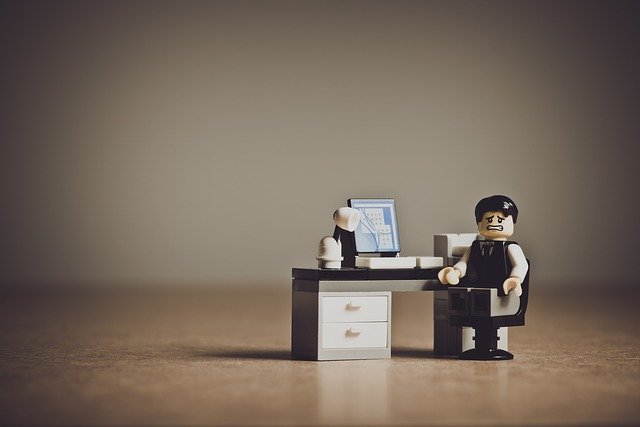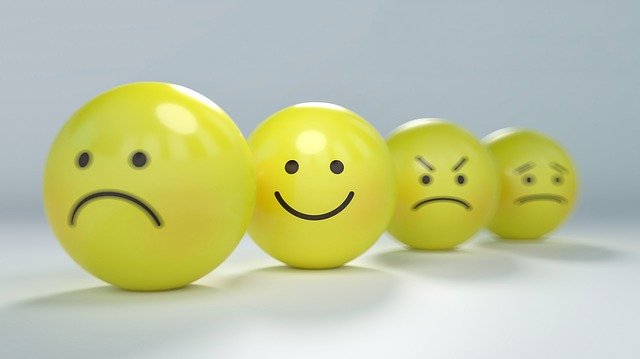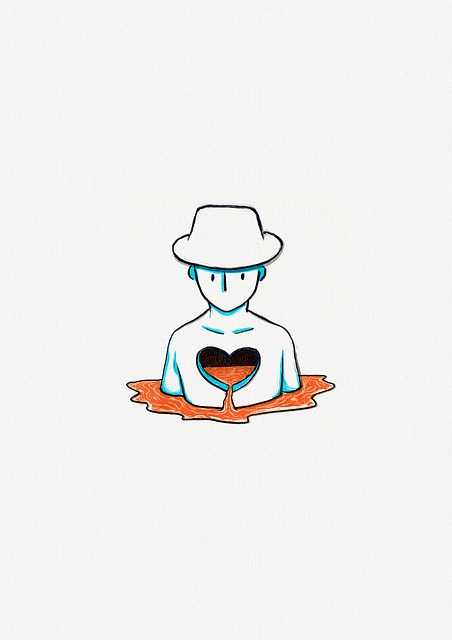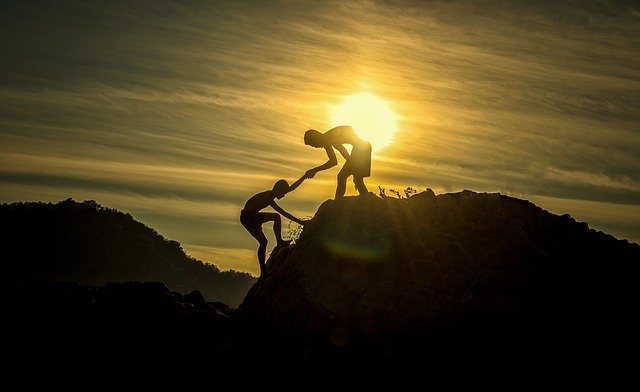"All of humanity's problems stem from man's inability to sit quietly in a room alone"
Blaise Pascal
There is a general sentiment that people don't talk about mental health.
I have been living with a number of mental health issues for a number of years and have recently found myself at a low point.
I previously did not acknowledge any of my issues as mental health issues. I have known (and do know) numerous people who have serious cases of depression and noting their plight almost felt unjustified in implying that any of my issues were similar.
In reality my situation is (according to my therapist) the typical tick list of candidate for depression:
- I went to boarding school. I hated it. Abandonment issues? Read about Boarding School Syndrome - it is incredibly interesting.
- I work for myself. In solitude. In software (a hyperanalytical field).
- I've been relatively successful at a young age. I've become jaded/cynical.

I have spent many many hours engaging with the NHS' mental health offering, and researching mental health issues/conditions (this in itself being indicative of a compulsive need for answers), as well as an unreasonable amount of money seeing a private therapist. I thought I would document what I discovered here.
Why?
- I have always been fairly transparent about my life.
- Journalling is suggested as a way of getting ones thoughts out. Blogging is public journalling.
- People don't talk. Whilst opening up to others, others have opened up to me. It turns out that near enough everyone has their 'things' but for whatever reasons people don't want to talk about them.
The National Health Service
It's free. You can't really complain but based on my experiences their mental health offering is.. rubbish.
The NHS is underfunded. There are not enough GPs, and they don't have the right knowledge/understanding/incentives to help.
I was having serious issues with anxiety which were exacerbated by my GPs archaic queue system for booking an appointment. It took months to find myself being offered a shopping list of antidepressants in a phone consultation. I was apprehensive based on my perception of the side effects of antidepressants being significant and serious. Turns out my apprehensions were reasonable.
I was prescribed 50mg of Sertraline which is apparently the most commonly prescribed antidepressant. At first I was scared to start taking them (an apparently not uncommon feeling) but eventually I pulled the trigger.
The issue with SSRIs is that there are side effects. The side effects are worst in the first few weeks, and starting/stopping requires you to slowly build up chemical levels in your body. That is to say that once you stop you have to taper off them if you want to stop safely. You can't just stop.
Unlike the side effect of Ibuprofen (for example) which effect 1 in every large number here people (and are listed purely for legal/liability reasons), the side effects of SSRI's (based on my discussions with mental health professionals) effect almost everyone. What differs is the specific side effects that each individual experiences, and the intensity of them..
It's perverse that anxiety medication caused me.. insane anxiety prior to taking them. It then turned out that I experienced the 'initial increased anxiety' side effect.. badly. They made me incredibly anxious.
The first night I woke up at 4am sweating, clawing at my bed, rolling around in major distress. It was unbearable and I was just fortunate that after about half an hour it stopped. Hyperbole aside I think it was one of the worst experiences of my life.
Over the next few days I was constantly anxious, felt nauseous, was unable to eat, and found myself without fail waking up in the early hours with crippling anxiety. At this point in time 3 weeks on I have still yet to get over the insomnia. Sexual dysfunction.. yup, thats definitely a thing (and is apparently a side effect that effects most).
The next few days were intriguing. There were periods of complete calm. Nothing worried me and I didn't care about anything. It was like being high. The next moment I was crying whilst being comforted by the cleaner, crying on the phone to the doctor, crying in the cafe in which I help out etc.
An eye opening experience was witnessing/experiencing the way in which people react when the standard question "How are you?" is met my the non-standard answer "Actually, I'm feeling pretty terrible". It gave me faith in humanity and made me despair in equal measure.
My viewpoint at this moment in time is that like psychedelics SSRIs point you in the right direction. The cost of that is that they take away your agency and feeling.
I find myself right now feeling internally/emotionally terrible quite consistently yet the drugs present an inconsistent facade which alternates between anxious/broken and numb/despondent/dissociated.

Doctors within the NHS have a duty of care towards their patients yet in my experience my doctor did not look out for my wellbeing, did not appropriately outline what he was prescribing me, and showed little compassion when things started falling apart for me. I felt fundamentally let down.
Visceral Emotions
The problem with emotions is that they are contextual. Emotions are fleeting and can not be accurately described in words.
Over the past few months I have journaled my thoughts and feelings extensively hoping that I'd be able to look back at my writing and accurately compare how I am feeling at any given time.
In practice this does not work.
My anxiety of a month back was different to that of today. After all, it was associated with different circumstances and life position. I documented that previous anxiety as being the worst of my life.
I can vividly remember sitting at the kitchen table of my ex's sisters home. Having had little to no sleep (due to Sertraline side effects) I was trying (and failing) to eat a tiny bowl of oats so as to fuel my 11 mile run whilst reading the first pages of Happy by Fearne Cotton (a book I need to purchase and finish). I had the shocking realisation that I had lost.

The most important relationship you'll ever have in your life is the relationship you have with yourself. I have an incredibly poor relationship with myself.
I have always had extremely low self esteem but (believe that I) have mastered the art of concealing that fact. Most people that I know (I think) would state that I am confident, social, and outgoing yet recently the energy to maintain that facade has fallen. I have little to say and I struggle to discern to what extent that is caused by the numbing effects of Sertraline and to what extent it is caused by emotional exhaustion.
It is what it is
Over the past year I have spent an unreasonable amount of time (and money) trying to explain away my problems.
I have read numerous books (all of these are must reads):
- The 5 Love Languages: The Secret to Love that Lasts
- Attached: Are you Anxious, Avoidant or Secure? How the science of adult attachment can help you find – and keep – love
- 12 Rules for Life: An Antidote to Chaos
- Atomic Habits: the life-changing million-copy #1 bestseller
- The Almanack of Naval Ravikant: A Guide to Wealth and Happiness
- The Psychology of Money: Timeless lessons on wealth, greed, and happiness
- Man's Search For Meaning: The classic tribute to hope from the Holocaust
- Digital Minimalism: Choosing a Focused Life in a Noisy World
- Men Are from Mars, Women Are from Venus: A Practical Guide for Improving Communication and Getting What You Want in Your Relationships
- Happy Sexy Millionaire: Unexpected Truths about Fulfilment, Love and Success
I have watched videos:
- The power of vulnerability | Brené Brown
- Dan Kwartler: What causes insomnia?
- How to fix a broken heart | Guy Winch
- The High Price We Pay for Our Fear of Loneliness
- Full of Regret for Screwing Up Your Relationship?
I have tried to buy fixes to my problems:
- It's my phones fault. I bury my head in my phone to hide my lack of life fulfilment - phone timer lock box.
- I'll fill my time buying collectible pieces of cardboard such that I don't have to fix what needs to be fixed - binder for the vast numbers of trading cards I have purchased.
- It's my sleep problems. Magic products will fix my sleep which will fix everything - weighted blanket.
- It's my work habits. I need to work less, and prioritise the important things in life - timer so that I don't work for more than an hour without a break.
- I need to adult better - frying pan oil splatter protector (because adults have proper kitchen equipment).
.. and yet I have not succeeded in fixing my problems.

That said I believe that I have accurately discerned my issues:
- I am fundamentally unfulfilled by my 'work'.
- I lack purpose and drive - money does not buy happiness.
- I am avoidant. My family and my upbringing have left me unable to be vulnerable, unable to open up emotionally, and unable to accept help. For the same reasons my family cannot aptly provide emotional support.
That said, I have the rare benefit of an almost disgusting level of self awareness that is almost certainly a by product of my ability to overthink everything to the nth degree.
Support networks
Tatkin, Kanaris and Charnofsky agree on one thing: reaching out for emotional support is one of the best ways to handle a heartbreak – at least, in the immediate aftermath of the event. But if that’s not enough, a person should seek a professional counsellor. ‘They can really wear out their family and friends by being that person who is constantly talking about the break-up,’ says Tatkin.’
I do not have a strong support network around me.
I prioritised my career during my twenties. Fortunately? that was a successful endeavour. I do sometimes wonder what kind of position I would now be in had I prioritised my career and failed.
My successes were fortunate. Combinations of hard work, luck, and circumstance. I must always check my privilege and note that whilst my family have been unable to offer me what I feel that I needed emotionally they have always supported me, always had my best intentions at heart, and have allowed me to pursue opportunities in ways that others simply could not.
On reflection my pursuit of success was very much associated with a lack of self worth. I remember during my years at boarding school promising myself that I would earn enough money to pay back my parents for my school fees. When I did it occurred to me that they didn't need that money, that the gesture would have been petty, and that if I followed through.. I would no longer have that money.
2021 was the year that I finally sat down with my parents and hashed out my issues with my childhood. Previously it had been left as a point of contention between us - their view was that they had tried their best, had my best interests at heart, and that I was ungrateful. I can appreciate their view point but it was incredibly important for me that they acknowledge that pure intentions or not the outcome for me was.. suboptimal.

Break ups
Millions of people go through a break up each year. The emotions people go through are fairly well documented. The withdrawal associated with a break up is considered similar to that of a drug addiction. I have never experienced a drug withdrawal but I can certainly attest to the mega intense feelings associated with the grief associated with a break up.
I definitely have an avoidant attachment style. The above Instagram video was sent to me by a friend and I feel that it was the most succinct explanation of the attachment style. I see myself in every single point.
The problem that I had in my latest relationship was that being self aware is not enough. You have to actually fix the problem, and as much as I tried I could not.
There comes a point at which you have to hold up your hands and accept defeat. My inconsistency, and yo-yoing between push and pull hurt my ex significantly. If I were a friend/family member of my ex I would have advised her to walk away but love is a powerful drug.
When push came to shove I had to end the relationship because I need to sort myself out. You have to love yourself before you can love someone else (and all that jazz). I have failed thus far in a relationship, and it felt insincere to drag someone down (who deserves so much) with my own emotional baggage.
Isolation
I've isolated myself.
Having worked for myself for the past 6 years I do not have the traditional structure that a job provides to most. I also do not have the forced social interaction of your traditional job. I can not overstate the significance of social connection in life. My biggest mistake was not nurturing my social relationships, and not practicing so as to allow me to emotionally open up.
I am not alone in this regard. The epidemic of loneliness has only been exacerbated by Coronavirus, and whilst its difficult to attribute the specific effects Covid has had it is certainly clear to me that it did not help.

Therapy
Therapy is (for some ridiculous reason) considered a taboo subject.
Again however it is a subject which once bought up many seem to open to talking about. There have been at least 3 occasions on which after opening up about therapy others with whom I have conversed have mentioned having considering finding a therapist.
The problem is that finding a therapist is a minefield. There are so many different types of therapy (Transactional Analysis, Cognitive Behaviour Therapy, Cognitive Analytical Therapy, Eye Movement Desensitization and Reprocessing, and so on..).
Furthermore, therapists are busy. Covid has increased demand for therapy massively and I have found on numerous occasions that therapists simply do not have the capacity to take on new clients. If there is this much demand for private therapists It makes complete sense that the NHS can not keep up with the demand for free therapy but it does present an awkward and dangerous problem: poor mental health can lead to poor outcomes.
It struck me as incredibly insensitive that on a few occasions therapists who I had contacted questioned as to whether I was suicidal. Having noted that I was not they then informed me that they had no availability. Of course therapists have a duty of care to point anybody who is having a really tough time in the right direction, but it is a sad state of affairs when unless you situation is truly dire you are oftentimes fobbed off. Of course, private therapists are running a business, have their own mental health to consider, and can't help everyone but it doesn't seem like an if question but rather a how many question: how many people end up in a worse situation (and possibly the worst situation) simply because they can not get the support that they need.
On the subject of therapy for therapists, I have inadvertently come to know a number of people who work in mental health service provision and therapy for therapists is a thing. Dealing with people with mental health problems must be incredibly draining in the same way that supporting friends/families with mental health problems is super tough. Therapists do partake in their own therapy and many have to consciously take time for themselves simply because holding a multitude of other peoples problems in your head is no easy task.
I'm not sure how or when but I would love to play a part in increasing access to therapy. A friend of mine once said that "everyone can benefit from therapy" and whilst I had never thought about it because I simply couldn't relate, life circumstances have conspired to make it patently clear the value of supporting mental health issues.
If you are reading this I would implore you to think about mental health and how it effects the people around you. Reach out where appropriate and offer your support where you can. It is understated how the small things can make a world of difference to an individuals mental health, and as I myself have discovered everything is OK.. until it isn't.
Anxiety
Spending a lot of time thinking about my life, my situation, and the content of this post I came to the conclusion that my issues are.. anxiety. Overthinking and the associated anxiety.
I never used the word anxiety to explain my actions previously but on reflection:
- I learned how to complete corporate accounts and tax returns because of anxiety over my previous accountants ability to do his job.
- I maintain a knowingly sub-optimal investment portfolio because of my anxiety over making changes. I know I could make more money, but I don't because I am scared of change.
- I am indecisive about everything, big or small due to anxiety about making the wrong decision. No decision seems better than a wrong decision.
- I script follow. I am anxious about peoples expectations from me. I always need to know (and understand) what is expected of me.
- I am anxious about the future. I need all of the answers.
Coaching
Over the past year I have had a number of coaching sessions with Oli Anderson. Out of curiosity I was looking through things that I had previously written in conversation with him.
Getting things on paper (journalling) and digital journalling (like this post) have been incredibly useful for me in becoming more aware of my thoughts and emotions.
Over the past year or so I had maintained a 'One line a day' diary which contains 365 pages on which you can detail what you did on a given day. Each page covers a 5 year period, the idea being that you fill it in for each day for 5 years and you can see how things have changed. The issue that I had with this approach is that 1 line is not very much and I was not open or honest in writing down actually how I felt. Similar to social media in the modern day and age, I only documented good things. If nothing good of note had happened the entries amounted to "Went for a run, did some work". I so wish that I had more honestly completed this or preferably had maintained a long form journal (as I do now). I would love to be able to look back and reflect on how I actually felt back on any given day, and why.
Instead I have to rely on Oli's coaching notes and our discussions to get an idea. I have copied and pasted some interesting snippets.
Back on the 10th September 2019 (nearly 2 years ago) I answered some questions he posed.
What is emerging for you now? What is your potential at this time?:
I am in a position to pursue whatever I want within reason so I feel like I should put my all into whatever I do.
I realised recently that I do want a partner in crime. I had kind of got used to being single and had forgotten how great a relationship with a great person is. Potential - unlimited.. in principle.
What is getting in your way? What is holding you back? How are you stopping yourself?:
Anxiety, Overthinking.. everything, and general self destructive behaviour.
General subconscious lack of self esteem? even though I am outgoingly (and perceive myself to be) confident.
What qualities do you need to develop in order to take the next step or realise your potential?:
Less self doubt. Further appreciation for the here and now. Honest/realistic outlook.
On the 19th November 2019, I noted that I had the following issue:
"Occasional ‘curl up in a ball and do nothing’ bouts of anxiety."
and the desire to be "Less unreasonably anxious".
Oli noted:
"Tom has a tendency to judge himself and his progress"
"he has an assumed judgement about what other people might think about the fact he’s having coaching".
On the 13th January 2020 Oli noted:
- "When we explored his values, it became clear that Tom needs to be ‘all-in’ to feel that something is worthwhile."
- "Tom constantly wants to feel that he is moving forward and becoming a better version of himself."
- "Tom’s thinking style is about understanding as much as possible and getting ‘closure’ etc. This may be linked to some of the “I’m not worthy” stuff (possibly) as people who have that assumption often need to control things to prevent such feelings being triggered. Either way, T needs to feel a sense of control over the situations that he finds himself in"
On the 12th March 2020 I noted:
- "Anxiety is sometimes an issue."
and Oli noted:
- "Some of the anxiety issues are related to his tendency to judge or analyse himself"
- "The session ultimately ended up focusing on small steps that Thomas could take to spend less time in his head and perhaps a bit more in his body. This feeds into the ‘anxiety’ thing."
On the 31st March Oli noted:
- "This doesn’t mean he’s solved all his emotional problems but it does perhaps suggest he’s been catastrophising his own judgements of himself at least a little"
and vitally:
- "He wasn’t ready to take any actions yet because his needed to explore his stuff. The way I approach this ‘growth’ stuff is the three steps mentioned above: Awareness, Acceptance, and then Action"
The point being, and the conclusion to this post being that my life situation and my life experiences have put me in a very precarious situation.
I am very much aware of my issues, have very much accepted them, but have as of yet (for multiple years) failed to action a resolution to them.
Mental health issues are insidious - they run deep, and they are extremely difficult to resolve. I know of a number of people who have struggled to resolve their mental health issues. It is a shame.
This post served to put things front and center in my own mind because it is vitally important to me that I am honest with myself and actually sort my shit.






